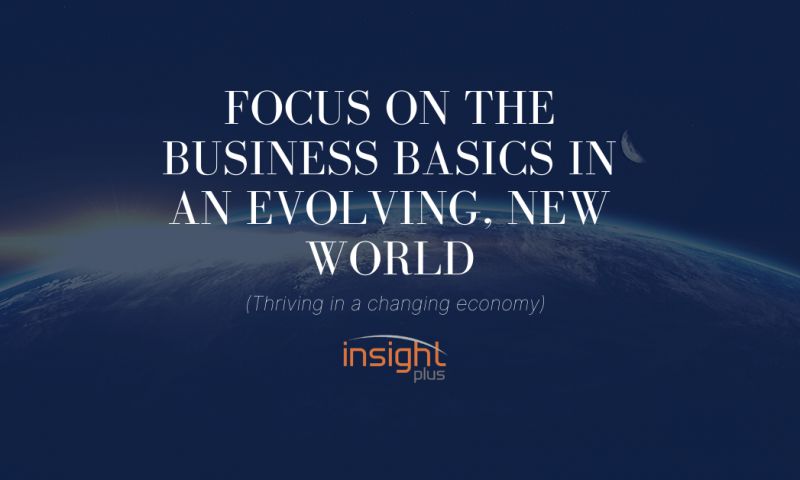Covid-19 (Coronavirus) has and will continue to have a profound effect on the world. The repercussions of this phenomena will extend beyond personal health and wellbeing and will affect our social, mental and business lives more than any other single event that we have experienced in our lifetime.
Whilst it is too early to understand the true size of the problem that this pandemic will have on the business community and the environment in which we operate, Insight Plus has previously conducted surveys of the business community and undertaken research into the ways that businesses must adapt to an economic downturn such as we can expect. There is no doubt that Covid-19 will fundamentally change our economy and there is much to learn from previous economic disruptions.
CEOs, executives and managers will be asking, “How can I better ‘fireproof’ my organisation to prepare for the uncertainty that may lie ahead?” A survey of more than 100 executives revealed a number of consistent themes in response to this question. Most mentioned the need to watch debt, cut excess costs and to stay focused on the customer. Many respondents ,however, took a more optimistic approach, recommending that organisations invest in their people, encourage creative thinking and innovation and look for opportunities to better satisfy specific customers’ needs. One of the most consistent suggestions is the need for careful planning.
Over the next few weeks, we will publish a series of insights into ‘fireproofing’ a business in the face of this changing economy. These insights have been garnered from the previously mentioned survey of executives, conversations with clients, discussions generated in planning workshops, newspaper articles and other media reports.
Key Topics
1. Learn from the past
2. Think optimistically
3. Operate differently (start to innovate)
4. Focus on the numbers (improve cash flow and cut costs strategically)
5. Improve your flexibility and responsiveness
6. Focus on the customer (make the most of existing customers and improve sales & marketing process)
7. Confidently lead change in the organisation
8. Create a high performance culture
We will focus on two topics per week
1. Learn from the Past
- People, People, People. Start with a focus on your number one asset – your people. In an uncertain environment health and wellness of your people must be your foremost priority. Is the environment in which they work safe? Have you ensured that all the right health measures are in place? How easily and comfortably can your people continue to work remotely? What ongoing support will you provide if and when life returns to normal?
- Take Stock. Look closely at your general ledger, cash flow, liquidity, debt and general financial health. Conduct a risk assessment on all your customers to ascertain their immediate viability. (More detailed insights provided in the later section Focus on the Numbers)
- Examine previous economic downturns and find ‘wise counsel’. Common threads can often be found from one downturn to the next. The cause of this latest economic downturn differs from the past but the effects will be similar. Talk to people you respect who have experienced economic instability in their business life. Listen to their insights. Use them as sounding boards for you own thoughts and ideas. What has worked in the past may not necessarily work now but it may give you some ideas and a pathway as a guide to your next steps.
- Use this time as a mandate to ‘sort out’ the organisation. Downturns tend to expose poor performance and provide an opportunity to make the painful decisions that have been put off up until now. Realign the focus of your organisation, reduce ‘the fat’ and improve its flexibility and responsiveness to market needs.
- Further develop your commercial awareness. Keep up with trends and developments in your sector. Try to understand how this pandemic will affect your customers, your suppliers and anyone connected with your business. Read widely. Reflect deeply.
The next topic in this series is Think Optimistically.


Leave a reply